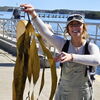Processing Your Payment
Please do not leave this page until complete. This can take a few moments.
- News
-
Editions
-
- Lists
-
Viewpoints
-
Our Events
-
Event Info
- Business Leaders of the Year Reception 2025
- Women's Leadership Forum 2025
- On the Road with Mainebiz in Bethel
- Health Care Forum 2025
- On The Road with Mainebiz in Greenville
- On The Road with Mainebiz in Waterville
- Small Business Forum 2025
- Outstanding Women in Business Reception 2025
- On The Road with Mainebiz in Bath
- 60 Ideas in 60 Minutes Portland 2025
- 40 Under 40 Awards Reception 2025
- On The Road with Mainebiz in Lewiston / Auburn
- 60 Ideas in 60 Minutes Bangor 2025
Award Honorees
- 2025 Business Leaders of the Year
- 2024 Women to Watch Honorees
- 2024 Business Leaders of the Year
- 2023 NextUp: 40 Under 40 Honorees
- 2023 Women to Watch Honorees
- 2023 Business Leaders of the Year
- 2022 NextUp: 40 Under 40 Honorees
- 2022 Women to Watch Honorees
- 2022 Business Leaders of the Year
-
-
Calendar
-
Biz Marketplace
- News
- Editions
- Lists
- Viewpoints
-
Our Events
Event Info
- View all Events
- Business Leaders of the Year Reception 2025
- Women's Leadership Forum 2025
- On the Road with Mainebiz in Bethel
- Health Care Forum 2025
- On The Road with Mainebiz in Greenville
- + More
- On The Road with Mainebiz in Waterville
- Small Business Forum 2025
- Outstanding Women in Business Reception 2025
- On The Road with Mainebiz in Bath
- 60 Ideas in 60 Minutes Portland 2025
- 40 Under 40 Awards Reception 2025
- On The Road with Mainebiz in Lewiston / Auburn
- 60 Ideas in 60 Minutes Bangor 2025
- - Less
Award Honorees
- 2025 Business Leaders of the Year
- 2024 Women to Watch Honorees
- 2024 Business Leaders of the Year
- 2023 NextUp: 40 Under 40 Honorees
- 2023 Women to Watch Honorees
- 2023 Business Leaders of the Year
- + More
- 2022 NextUp: 40 Under 40 Honorees
- 2022 Women to Watch Honorees
- 2022 Business Leaders of the Year
- Nomination Forms
- Calendar
- Biz Marketplace
Ask ACE: Do all agreements need to be in writing now?
Q: I believe that if you expect trust, you should show trust. I used to be able to do business on a handshake, and rarely got burned. Do all agreements need to be in writing now?
ACE advises: Verbal agreements may be enforced. Some agreements must be in writing. We’ll identify those. The real question is not whether agreements must be in writing, but whether they should.
History lesson: The handshake deal sustained a body blow in 1677. When literacy rates were below 20%, English courts decided contract disputes based on witness testimony alone. After a few centuries it was obvious the “they said, they said” approach had problems.
Both sides’ witnesses might be believable, making judgment a coin toss. This was particularly unfair when that coin toss came at high cost to the loser or gave the winner an undeserved windfall.
It was never about trust; it was about better proof. With rising literacy, Parliament decided that certain contracts were so lucrative that witnesses would be tempted to lie or could result in unfair financial injury if the court got it wrong. Enacted in 1677, the statute of frauds required written proof of agreements to:
- Require an executor to pay an estate’s debt personally
- Guarantee a debt
- Pay for a spouse
- Transfer a real estate interest
- Perform the contract for more than a year.
Today, all 50 states have statutes of frauds, roughly based on the original. Almost all require written proof of a sale of goods worth more than a certain amount (usually $500). In addition to the original five categories, Maine requires written proof of contracts to pay a debt discharged in bankruptcy, give property by will and not to compete.
You can memorize these categories, or just document your agreements. The U.S. literacy rate is 80%. Statutes of fraud simply require “a writing.” An email exchange may be enough to lay out the basic terms, and the other party’s acceptance.
More complicated deals may require a lawyer. But before you decide a handshake is enough, first decide how much you can afford to lose on a coin toss.
Carrie Green Yardley, vice president of ACE, founded Yardley Esq. PLLC in 2015. The firm works with small businesses and owners on governance and transactions, from startup to exit. She can be reached at carrie@yardleyesq.com.
About ACE
The Association for Consulting Expertise (ACE) is a nonprofit association of independent consultants who value “Success through Collaboration.” The public is welcome to attend its regular meetings to share best practices and engage with industry experts. For more information go to www.consultexpertise.com.











0 Comments